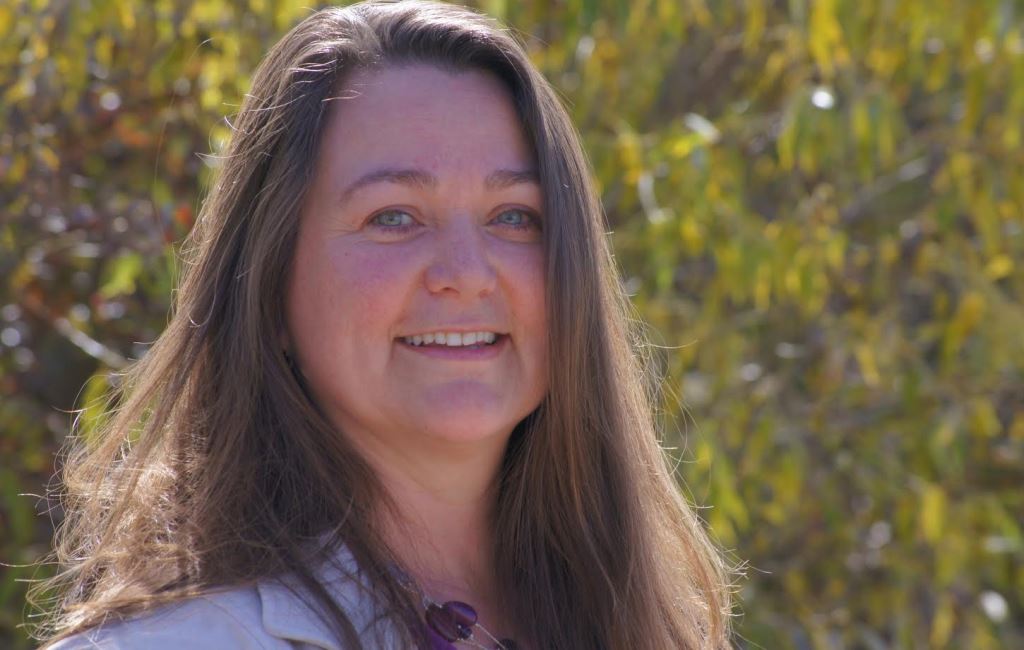
By: Dove
As a double-certified life coach specializing in trauma and transition, Triffany Hammond has her hands full with helping people change their lives for the better on the daily. In addition to various services via her own TheWellnessAccomplice.com and the expert tips she contributes to YourTango.com, Hammond also offers classes at Colorado Free University in Denver.
Triffany is stepping her career up even more by putting the “Love” in failure with her new book entitled F.A.I.L. to Win – and that means Love with a capital L. The self-empowerment advice is based upon the philosophy that accepting and learning from your personal and professional failure will actually help you reach the success you want.
In this UrbLife.com Optimism Rules feature, we get some tips from Triffany on how to maintain positivity each day, and find out more about her goals in sharing her words of wisdom with the masses.
You offer life coaching in areas of serious trauma, and mention on your site that you are a product of some traumatic events. What clicked in your own life to motivate you start helping others?
Triffany Hammond: I don’t remember ever making a conscious choice to help others, it’s an innate part of my makeup and has just been something I’ve always done. The decision to start doing it as a business, however, came when I realized that coaching people through their inner fears and personal triggers was a common thread throughout all of my jobs – even when it wasn’t technically called coaching.
I had to have a lot of iterations in order to discover that one thing I can’t not do, and once I had that nailed down the decision to get the education, certifications and create the F.A.I.L. to Win program was obvious. It is human nature to give meaning to our life events, especially the hardships, so that we have something to hold on to that can pull us through to the other side. That’s why phrases like, “everything happens for a reason” resonate with so many people. We believe it without being able to prove it because believing it feels empowering…at least empowering enough to keep putting one foot in front of the other.
Personally, the meaning I’ve given my life’s events is simple – I walked through the fire so that I could 1) strengthen myself from the inside out and 2) teach people how to do the same. I could point to any area of my life that felt traumatic or difficult, and I would find at least one person who helped me through…most likely two or three.
Your upcoming book is called F.A.I.L. to Win… What is the idea behind the title? What do you want people to take away from the book?
TH: At first blush it’s a kind of obvious truth that we must fail if we want to win. Practically conventional wisdom now, it’s espoused by the experts with catch phrases like “fail and fail often,” “my successes have been built on my failures,” and “fail and fail forward.”
The problem is that people aren’t conditioned to even accept failure, let alone embrace it and learn from it. Between our instinctual response to avoid pain and our educational structures that reward success and punish failure we’ve created an aversion to failure that runs very deep within our psyche. Even if we can intellectualize the truth that success is built by trial and error, there is a part of us that is terrified that seeking success will be our undoing, simply because we will have failed along the way so there is no buy-in on the part of our belief system.
F.A.I.L. to Win is a four-module system (For, All, Is, Love) that helps you break down those default fears, and return to your innermost values so that you can build success. It’s changing the way people approach everything. I’m really excited about it! I want people to Love themselves again. Everything I do is informed by the desire to bring people back to their truest state of being: Love. F.A.I.L. to Win does just that.
Thus far in your life coaching career, what has been your biggest challenge, and how did you overcome it?
TH: You’d think my biggest challenge would be something of an existential nature, but in terms of my business it’s much more base than that. I know how to build a business to a certain level of success. Last year, I hit a ceiling and I was no longer content to let that ceiling define the breadth of my service.
I made a declaration in November of 2014 that I wanted to be the dumbest person in the room. I wanted to be surrounded by people who were better marketers, speakers, messengers and designers. That started happening for me almost immediately and I’m still in the midst of receiving that experience. I couldn’t be more thrilled. I knew I had blind spots, and now I have people helping me see and solve them.
How is writing a book different from speaking with people directly? What are the challenges or benefits of writing vs. speaking in connecting with people?
TH: To put it plainly, I use a lot of words to explain myself. This is helpful when I’m face-to-face with someone, because people only retain about 15-20% of what they hear in any given interaction. So reiteration, explanation and laying the groundwork for my point creates more opportunity for connection and comprehension.
I don’t need that many words when I write. If people missed a point or forgot it they can go back and read it again. It’s difficult for me to tighten my message like that, but also very worthwhile. It has helped me hone my message and purpose, and makes me a better communicator overall. I’ve also noticed that writing and speaking each offers me their own unique reflection of where I have my own inner work to do. It’s helpful to have both experiences.
Can you give us some insight on how you stay positive each day? What tips can we put into motion?
TH: 1. I remember that staying positive is its own journey.
My first step with myself or a client is always “grace first.” We’re not always going to get it right, and there are times when being sad or angry is a necessary step in the process. The key is not letting those moments define you and remember while there are times when painful emotions are necessary they’re not at all meant to be permanent.
2. I remember that I get the choice to make every situation useful.
Painful experiences don’t have to be worthless. Often they’re the experience we need to practice something we asked for, like “I wish I were more patient” or they’re the reflection we need to see where we can grow. In other words, we just know we’re missing something, but couldn’t see it without this situation.
3. I remember that the painful truths aren’t the only truths.
Is it true that sometimes people are mean? Sure. It is also true that more often people are nice. This helps me keep perspective. Love is always the greater force.
4. I remember that I’m wired with a survival mechanism that turns my attention to the uncomfortable so that it can be dealt with.
It’s called the Negativity Bias, and we all have it. Just because our knee-jerk reaction is to see the bad first doesn’t mean that bad is all there is.
5. I remember that I’m fallible and that being wrong or wronged is part of the human experience.
Often the very darkness we’re averse to is the contrast we need to be able to see and appreciate the light.
6. I remember that success in life is not built on making a commitment once.
Positivity, happiness, success they’re all the result of practice. They’re built over time, which means we cannot just commit ourselves once we must commit and recommit repeatedly.
7. I remember that I give meaning to my life experience.
I may not be in control of my circumstances but I am always in control of how I define them. Notice the use of “remember” – we already know all of these things positivity is as much a part of our nature as negativity, we just haven’t given as much attention to the former as we have the latter.
Do you see more book-writing in your future?
TH: Absolutely. I’ve contributed a chapter to an anthology titled Choose Your Adventure that is coming out in March, and I’m working on the outline for my next book titled Love Your Big Ask: Self-Advocacy with Reciprocity and Love, targeted to nurturers who have created dis-ease in life and body because they’re all give and no take.
Again, my big mission in life is to help people love themselves again and a big part of that is sharing the tools that paint the full picture of our human experience. I also learn a lot about myself when I’m compiling these ideas and stories for others. It’s a natural cycle of giving and receiving for me.
If you could partner with anyone on a speaking tour, who would it be and why? Do you have any other inspirations in the life coaching world?
TH: I’d love to tour with people like Byron Katie, Martha Beck, Jack Canfield, Tony Robbins, Joe Dispenza or Lisa Rankin. While they’re all great at their specific styles and gifts, they also seem like they’re constantly searching, they seem to understand that there is no arrival point, and this is all a big process around our inner work. That appeals to me as both an expert and a student.
What do you want people to know most about you at this stage of your life and career?
TH: That I’m just like them. I’m on a journey. Sometimes I get it right and sometimes I don’t. I’m learning and growing and while I’m all too happy to reach back and help someone forward I’m also extremely grateful to have others do the same for me. We’re all in this together, and the sooner we act like we’re on the same team, the sooner we all win.
For more information on Triffany Hammond’s work and services, go to TheWellnessAccomplice.com, and follow her on Twitter @TriffanyHammond, and at Facebook.com/TheWellnessAccomplice

2 Comments
Love this informational piece on Triffany, I often feel this should have been my field of choice!
Good stuff, Triffany! Really inspiring.